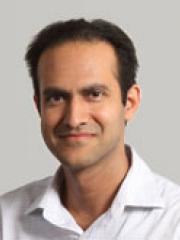Honorary Professor Saleem Ali

Honorary Professor Ali's primary research interests have been in the causes and consequences of environmental conflicts in the research sector, and the process of using ecological factors to promote peace.
As an environmental planner, Saleem has focused his research on how technical scientific information can be used to more effectively deliver development outcomes. He uses a wide range of qualitative and quantitative methods in his research. Ultimately his research aims to understand the causes of conflict and the role such conflicts can play in mitigating or exacerbating development disparities. In addition Saleem studies governance systems that can deliver peace dividends at both the local and international level. As a professional mediator, his research is geared towards highly applied problem-solving outcomes. However, outcome variables in his research are considered from a systems perspective and his research also intersects with industrial ecology and circular economy paradigms.
Saleem holds the Blue and Gold Distinguished Professorship in Energy and the Environment at the University of Delaware (USA) as well as being an Honorary Professor at SMI.
Saleem previously served as Chair in Sustainable Resource Development and professor of sustainability science and policy at UQ and was also the Director of the Centre for Social Responsibility in Mining from 2012 to 2016. Previously Saleem was a professor of environmental studies at the University of Vermont's Rubenstein School of Natural Resources, founding director of the Institute for Environmental Diplomacy and he is also a senior fellow at the Columbia Center on Sustainable Investment and at Georgetown University’s Center for Australia, New Zealand and Pacific Studies.
Saleem is a member of the IUCN World Commission on Protected Areas and serves on the board of governors of the non-profit environmental organization LEAD-Pakistan. He is also a se-ries coeditor for the University of Chicago Press on Environ-mental Science, Law and Policy. Saleem received his doctorate in Environmental Planning from MIT, a Master’s degree in Environmental Studies from Yale University and Bachelor’s degree in Chemistry from Tufts University (summa cum laude).
